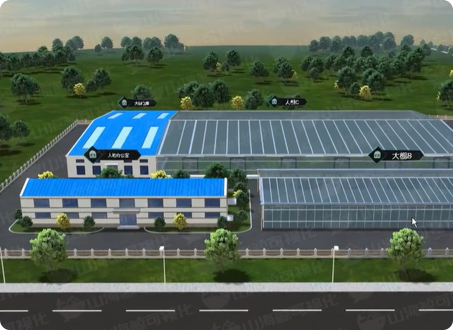
The digital twin farm
The digital twin farm represents the future of modern agriculture, combining advanced technology with agricultural practices, bringing significant transformation to farmers and the agricultural sector. This concept leverages the Internet of Things sensors, big data analytics, artificial intelligence, and automation systems, turning farmlands into highly intelligent, monitorable, and manageable ecosystems.
In a digital twin farm, farmers can monitor crucial parameters such as soil moisture, temperature, and light in real-time, allowing for better management of crop growth environments. Furthermore, automated robots and equipment can perform tasks like planting, fertilizing, pesticide spraying, and harvesting, enhancing production efficiency. Big data analysis and artificial intelligence also provide real-time insights, assisting farmers in making informed decisions, increasing yields, and reducing resource wastage.
Digital twin farms not only offer higher agricultural productivity but also contribute to sustainable agriculture and resource management. By reducing the use of chemical fertilizers and pesticides, optimizing water resource utilization, and minimizing energy waste, they help mitigate adverse environmental impacts.
In summary, digital twin farms represent the future trends in agriculture, enabling us to better meet the growing global demand for food while achieving more sustainable, efficient, and intelligent agricultural production.


